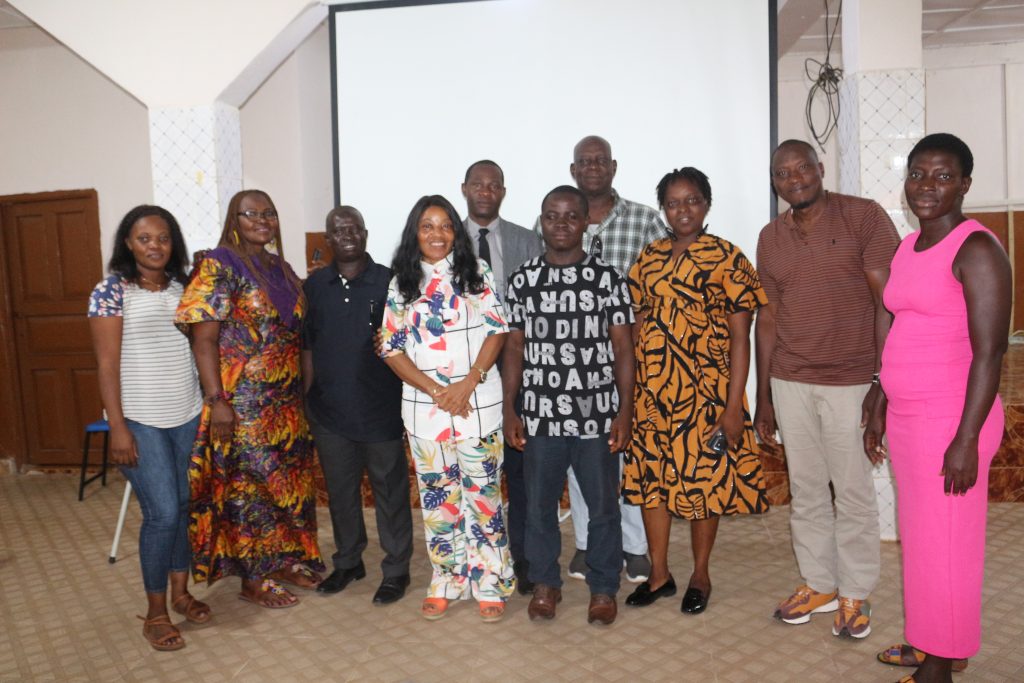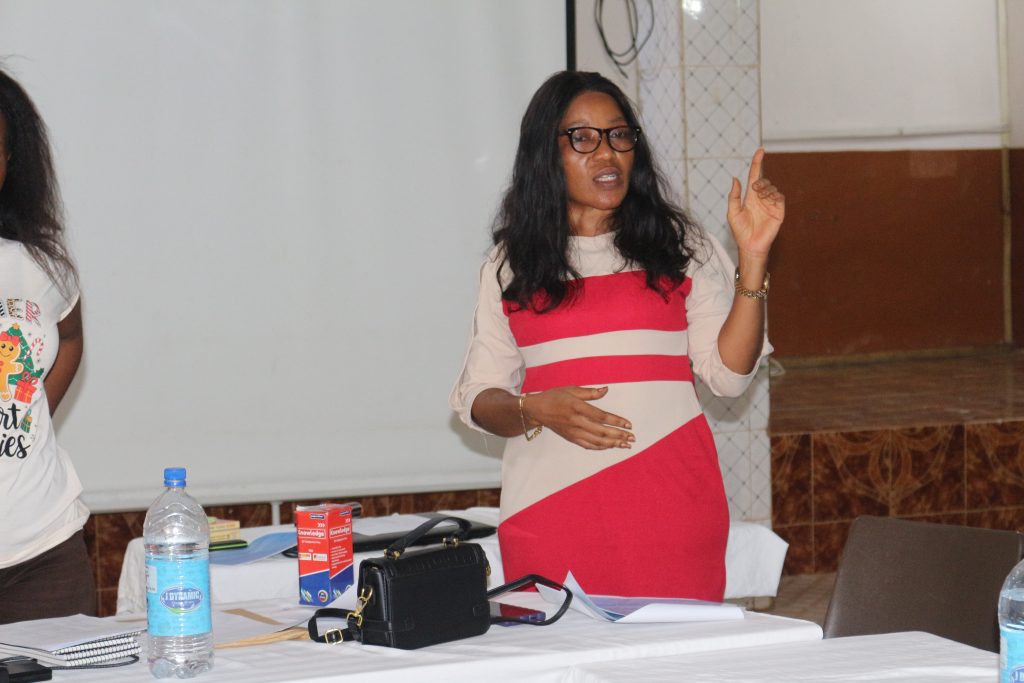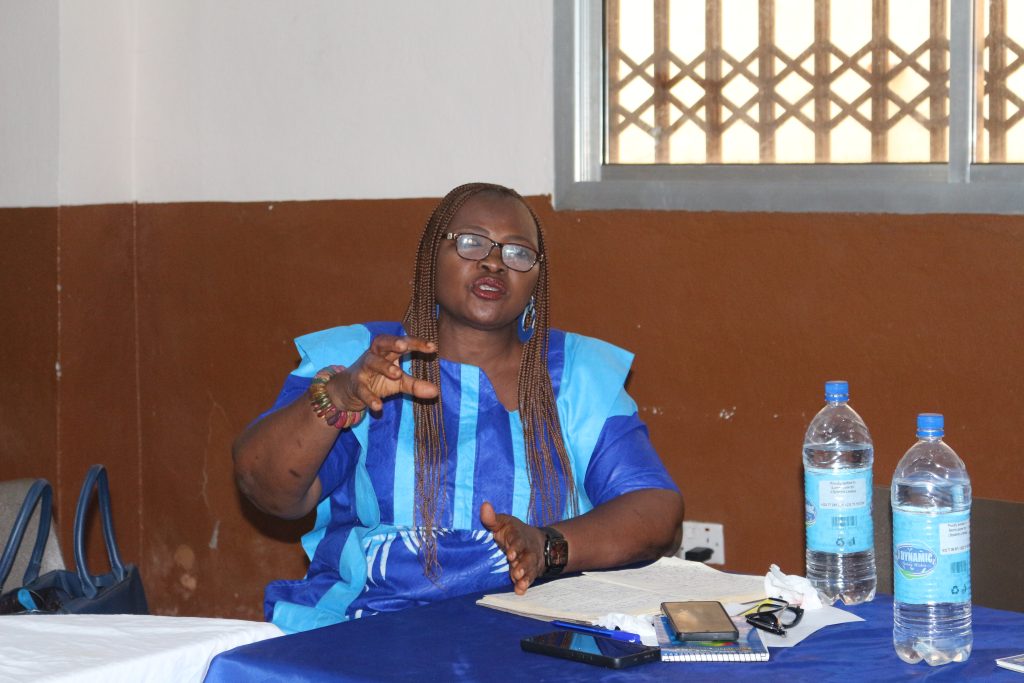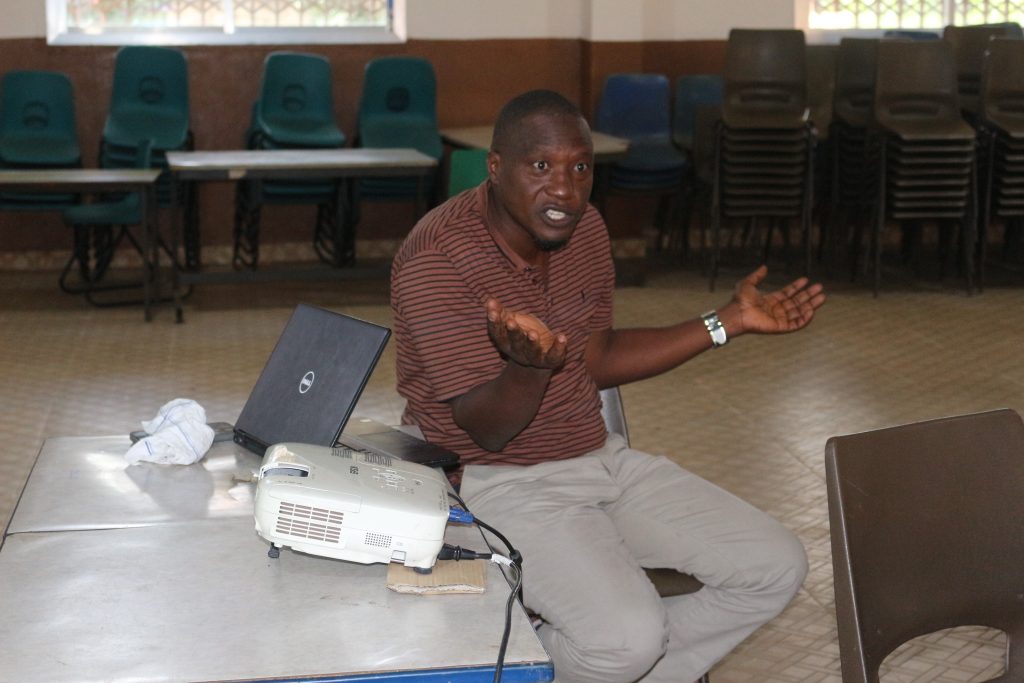
group image with stake-holders, FSUs and Ministry 
G2G Program Manager

Founder an CEO WADO 
Deputy District Director- MOGCA
With funds from comic relief, The Girl2Girl Empowerment Movement (G2G) recently held a two days community dialogue session with stakeholders: Family Support Unit, Ministry of Gender, and CSO’s and community heads of operational communities in Waterloo to discuss Sexual and Gender-Based Violence (SGBV) and identify effective ways to address it. The event aimed to strengthen community action, deepen understanding, and promote collaboration in the fight against SGBV in the Western Urban Rural district.
The session began with an introduction to the Girl2Girl Empowerment Movement, where participants were familiarized with the organization’s mission to empower girls and women through advocacy, education, and leadership development. The Program Manager emphasized G2G’s commitment to building safe spaces for girls, promoting Gender Equality, and amplifying community voices to bring sustainable change.
The Deputy District Director at the Ministry of Gender did a presentation on the current status of Sexual and Gender-Based Violence followed, highlighting the alarming rate of SGBV cases within the community. Participants learned about the devastating impact of these violations on survivors and society at large. The presentation also addressed the legal framework governing SGBV in Sierra Leone, including the penalties imposed on individuals who attempt to compromise or settle such cases outside the law. This discussion served as a reminder that SGBV is not a private matter but a serious crime that demands justice and accountability.
As the dialogue deepened, participants were divided into groups to share their experiences and identify root causes of SGBV within their communities. These discussion plenary encouraged honesty and reflection, revealing that harmful traditional beliefs, gender inequality, lack of awareness, and weak reporting mechanisms continue to fuel the prevalence of gender-based violence. Participants agreed that genuine community transformation requires changing social attitudes, empowering survivors, and creating an environment where justice can thrive.
Another important highlight of the session was a presentation on referral pathways and protocols for handling SGBV cases. The facilitators explained the proper procedures for reporting and responding to incidents, emphasizing the importance of confidentiality, survivor-centered care, and coordination among key actors such as the police, health workers, social services, and civil society organizations. This knowledge equipped participants with practical guidance to ensure survivors receive timely and appropriate support. It was generally agreed by all participants that G2G should produce a poster on community GBV referral pathway which will clearly inform community members on reporting incidences of GBV.
Throughout the discussions, participants identified several gaps and challenges that weaken the fight against SGBV, including limited survivor support services, poor coordination among institutions, compromises by community members including parents/guardians and inadequate awareness within communities. However, the participants also recognized strong opportunities for collaboration. By strengthening partnerships, conducting regular sensitization activities, and engaging traditional and religious leaders as allies, communities can make real progress toward eliminating gender-based violence.
On the second day, the dialogue session was with a set of recommendations and next steps for community action. Stakeholders committed themselves to working together to increase awareness on SGBV, support survivors through existing referral systems, and hold perpetrators accountable. The participants emphasized the need to involve men and boys in prevention efforts, promote continuous education on gender equality, and create safer spaces for women and girls to speak up without fear.
In closing, the Girl2Girl Empowerment Movement reaffirmed its commitment to leading community-driven action against all forms of sexual and gender-based violence. The session served as a reminder that ending SGBV requires the involvement of everyone from individuals and families to institutions and policymakers. Together, we can build a society where every girl and woman lives free from violence, fear, and discrimination, and where equality, respect, and justice prevail.